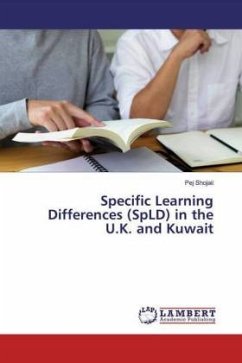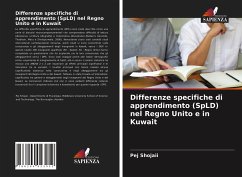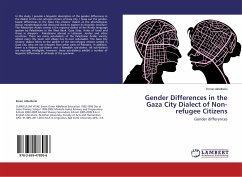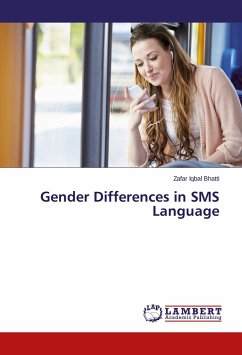
Specific Learning Differences (SpLD) in the U.K. and Kuwait
Versandkostenfrei!
Versandfertig in 6-10 Tagen
27,99 €
inkl. MwSt.

PAYBACK Punkte
14 °P sammeln!
Specific learning difficulties (SpLD) have been described as a series of neurobehavioural disorders comprised of difficulties in reading (dyslexia), writing (dysgraphia) and mathematics (dyscalculia) (Kulkarni, Karande, Thadhani, Maru, and Sholapurwala, 2006). Despite cross cultural studies being carried out on inclusive education, few studies have focused on the knowledge and attitudes of teachers in Kuwait, towards SpLD. In this study 100 qualified teachers (50 - Kuwait; 50 - U.K.) completed a questionnaire which explored both their knowledge and attitudes towards SpLD. Other demographic fac...
Specific learning difficulties (SpLD) have been described as a series of neurobehavioural disorders comprised of difficulties in reading (dyslexia), writing (dysgraphia) and mathematics (dyscalculia) (Kulkarni, Karande, Thadhani, Maru, and Sholapurwala, 2006). Despite cross cultural studies being carried out on inclusive education, few studies have focused on the knowledge and attitudes of teachers in Kuwait, towards SpLD. In this study 100 qualified teachers (50 - Kuwait; 50 - U.K.) completed a questionnaire which explored both their knowledge and attitudes towards SpLD. Other demographic factors such as: teaching experience of SpLD, age, and gender were also investigated. Statistical analysis included a 2 x 2 ANOVA to explore the significant main effects and interactions across variables. The main results revealed no statistical significance in knowledge and attitudes between teachers in the U.K. and Kuwait. Nonetheless, a significant interaction was found between gender and attitudes in teachers in the U.K. and Kuwait. The conclusions inferred that there were no evident cross cultural differences (between the U.K. and Kuwaiti sample) with regards to SpLD.












